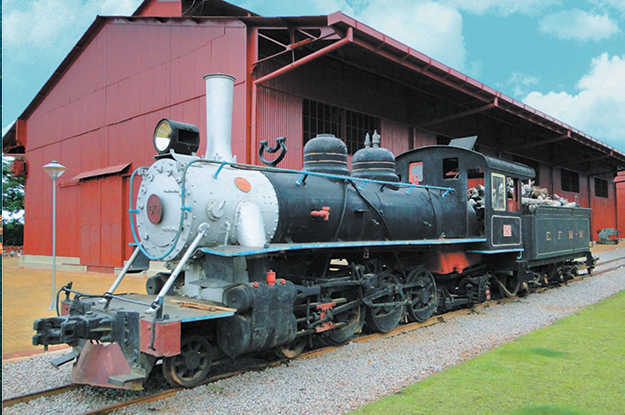This article is adapted from the Fall 2015 print edition of Americas Quarterly. To subscribe, please click here
Mad Maria, by the Brazilian author Márcio Souza, is not a new book. But 35 years after its publication, this historical novel about building a railway through the Amazon feels more relevant than ever.
Brazil, Peru and China are currently studying the feasibility of building South America’s first coast-to-coast railroad, a 3,300-mile-long set of tracks that would inevitably run through the Amazon — an area twice the size of India. Souza’s novel, published in 1980 in Portuguese and translated into English in 1985 by Avon Books, offers a frightening picture of what workers would have to deal with in the jungle if the project goes forward.
As one character puts it, “Ye die o’ the heat, ye drown in the muck, and if by some marvel ye manage to get around all o’ that, it’s diarrhea and malaria alinin’ up te kick ye in yer arse.”
The novel, set in 1911, teems with colorful characters, but it focuses on two Americans. One is a conniving Yale-educated businessman named Percival Farquhar, a real historical figure who owned the concession to build the 227-mile-long Madeira-Mamoré Railroad (nicknamed Mad Maria) from the river port of Porto Velho to the town of Guajará-Mirim on the Bolivian border. The other is a naive Irish-American doctor named Richard Finnegan who oversees the railway’s overwhelmed infirmary.
Though the doctor is Souza’s creation, the grim statistics he confronts in the novel are drawn from real life: Construction of the railroad cost an estimated 6,000 lives.
Unlike many books that portray the Amazon as a kind of magical rainforest akin to Disney’s 1992 animated film FernGully, Mad Maria does not idealize the jungle, which for Souza is a place where morality takes a backseat to survival.
“Men lost their charm out here,” says the novel’s narrator, “and even one’s idea of God ended up a bit tarnished in the midst of all this banal havoc.” One of the book’s parts is titled “Arbeit Macht Frei,” German for “Work Sets You Free,” a reference to the notorious Nazi slogan that hung above the Auschwitz concentration camp gates. Working on the railroad, as Souza depicts it, was not so much a career choice as a prison sentence.
The Amazon is a terrain that Souza knows well. He was born and still lives in the river port of Manaus, 900 miles up the world’s longest river, surrounded by the world’s largest jungle, subject to the region’s melting heat and drenching humidity, and isolated from the rest of the continent. I reported from across the Brazilian Amazon for three months in mid-2014, and could relate to Souza’s descriptions of the climate there, such as, “He swore at the sweat steadily pouring down one leg, trickling into his boot, and turning his sock into a hot, soggy waste.”
Mad Maria is worth reading alongside Souza’s first novel, from 1977, The Emperor of the Amazon (published in English in 1980, also by Avon), which retells some of the events leading up to Brazil’s annexation of the state of Acre from Bolivia. Both novels revolve around foreigners who are working in the Amazon, underscoring a theme common to Souza’s work: While much of the Amazon is in Brazil, it’s hardly under Brazil’s control.
This idea infuses a comic scene toward the end of Mad Maria when a railway manager is confused as to what nation’s flag should be flying over the town of Porto Velho: American, Bolivian or Brazilian. In an interview with Americas Quarterly, Souza, who turns 70 next year, said he wrote Mad Maria as a veiled criticism of the former military government’s doomed plan to build a transcontinental highway in the 1970s. “I couldn’t write about the Transamazônica because I would be arrested and persecuted,” he said, “but there was the Madeira-Mamoré Railroad. It was the same madness.”
Souza believes the ambitious new plan for a continent-crossing railway will eventually crumble, as did the previous eff ort to build a transcontinental highway through the Amazon. But if the project does go forward, “Mad Maria” will be a must read for all those involved, though it might convince some to quit while they’re still alive.
—
Stephen Kurczy is a freelance correspondent in Brazil and a frequent contributor to Americas Quarterly.





